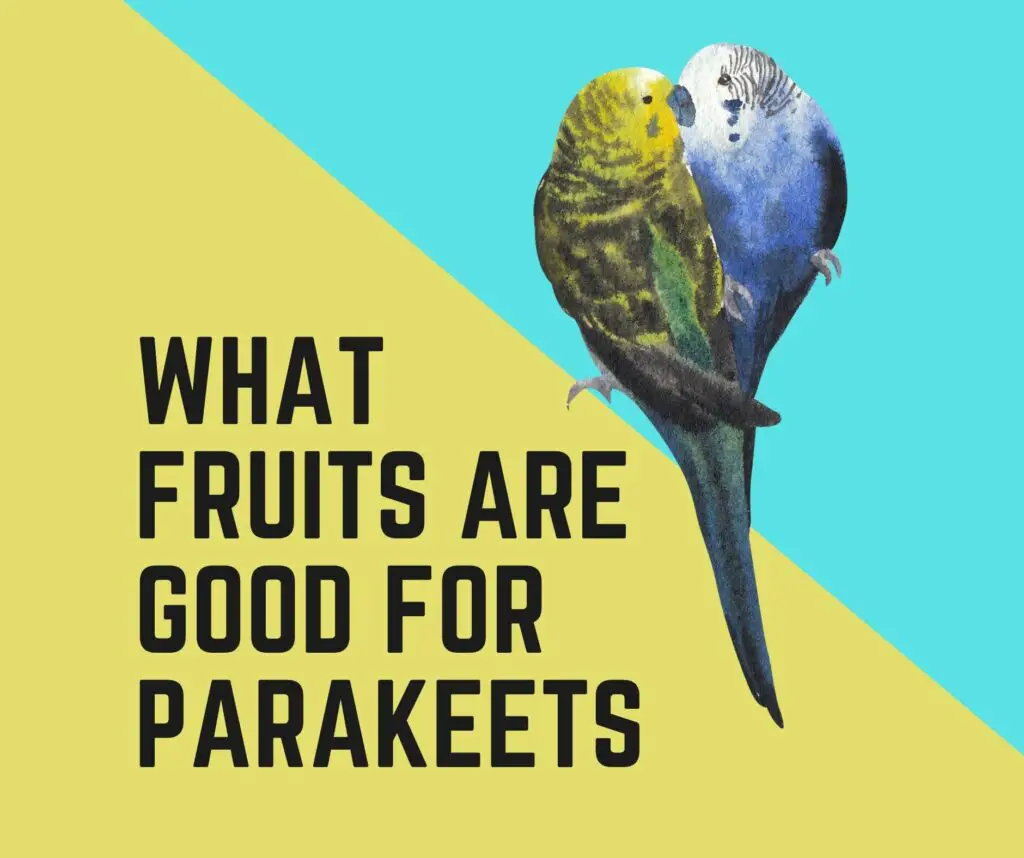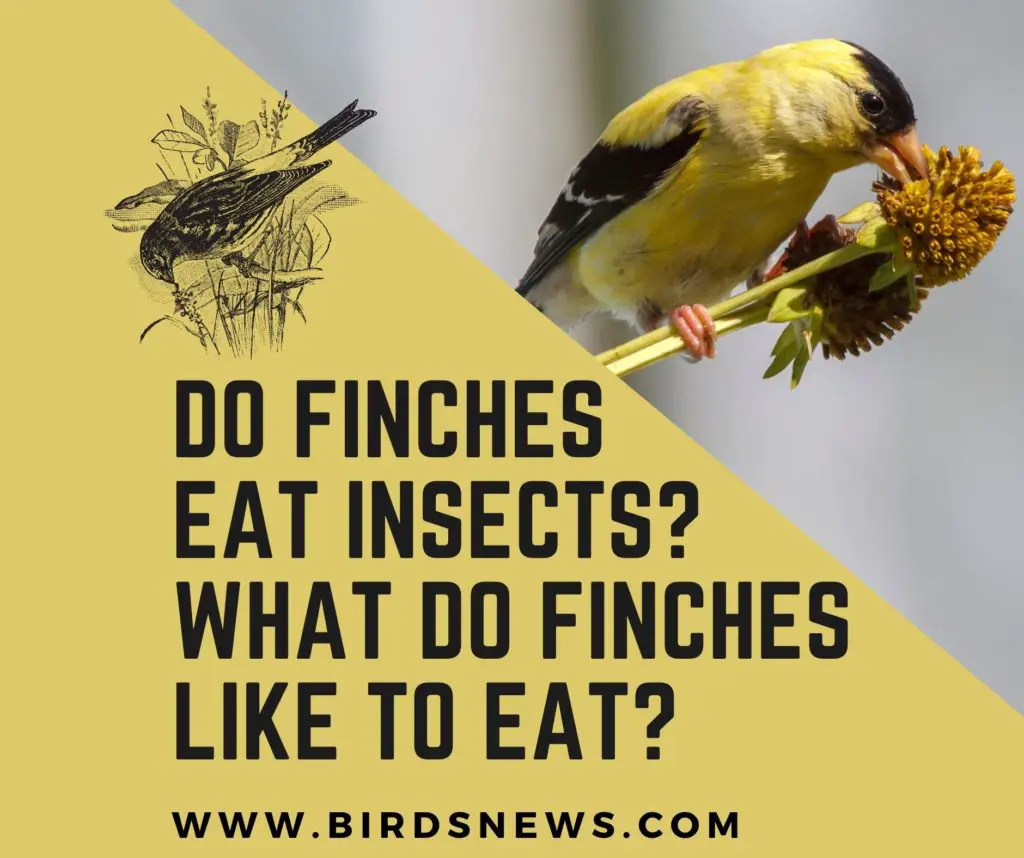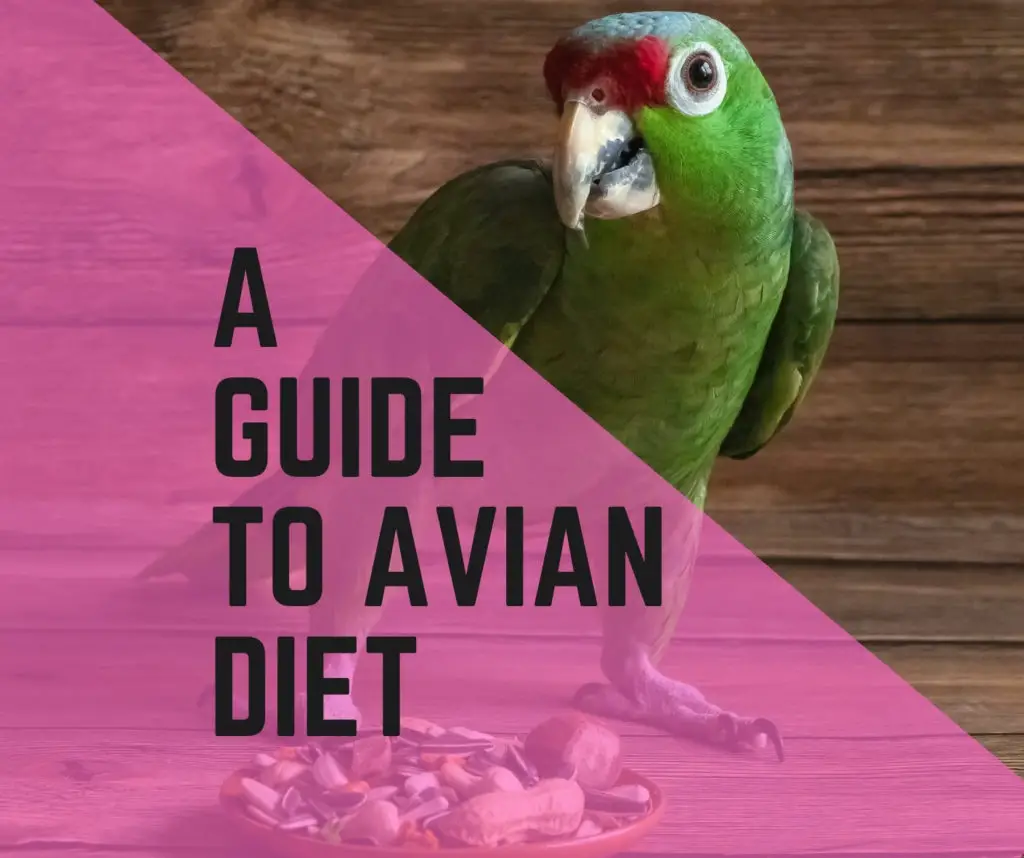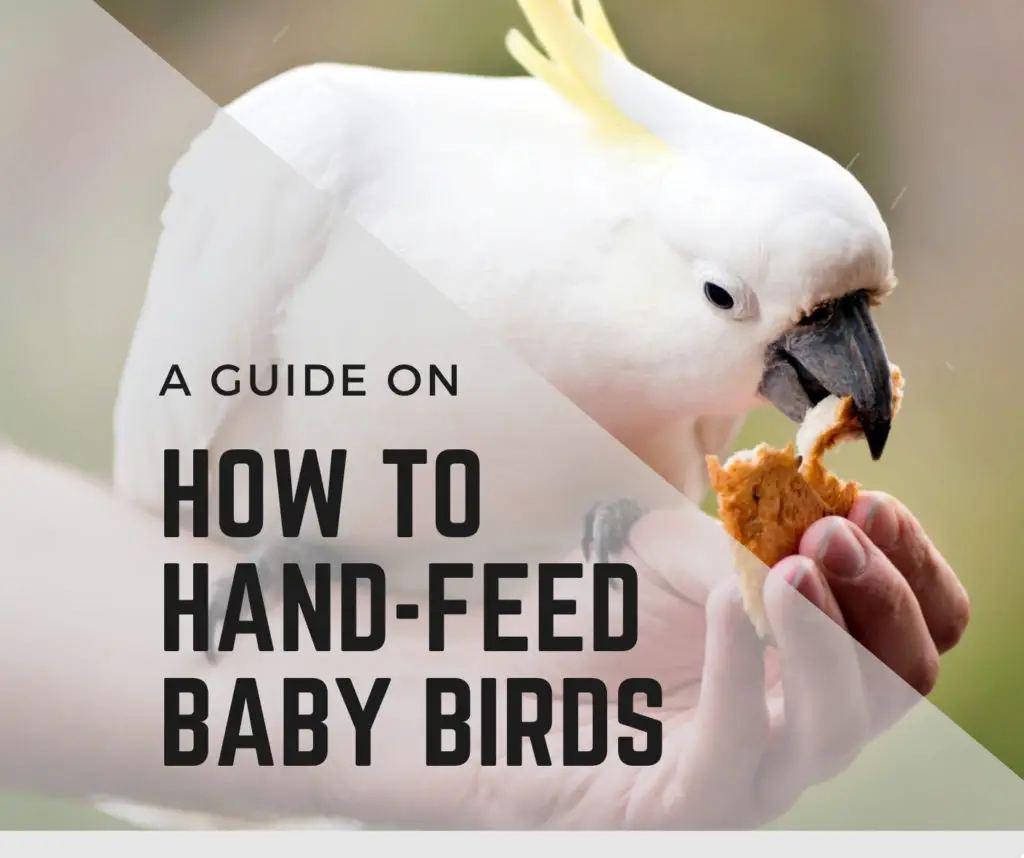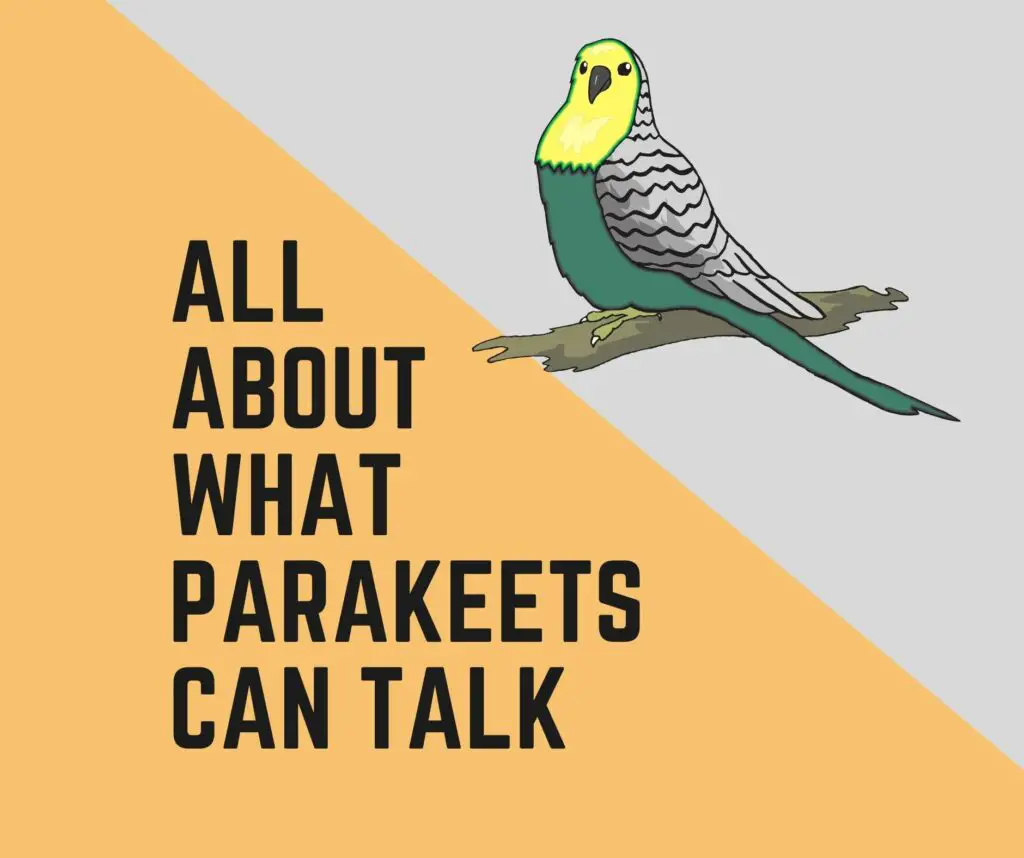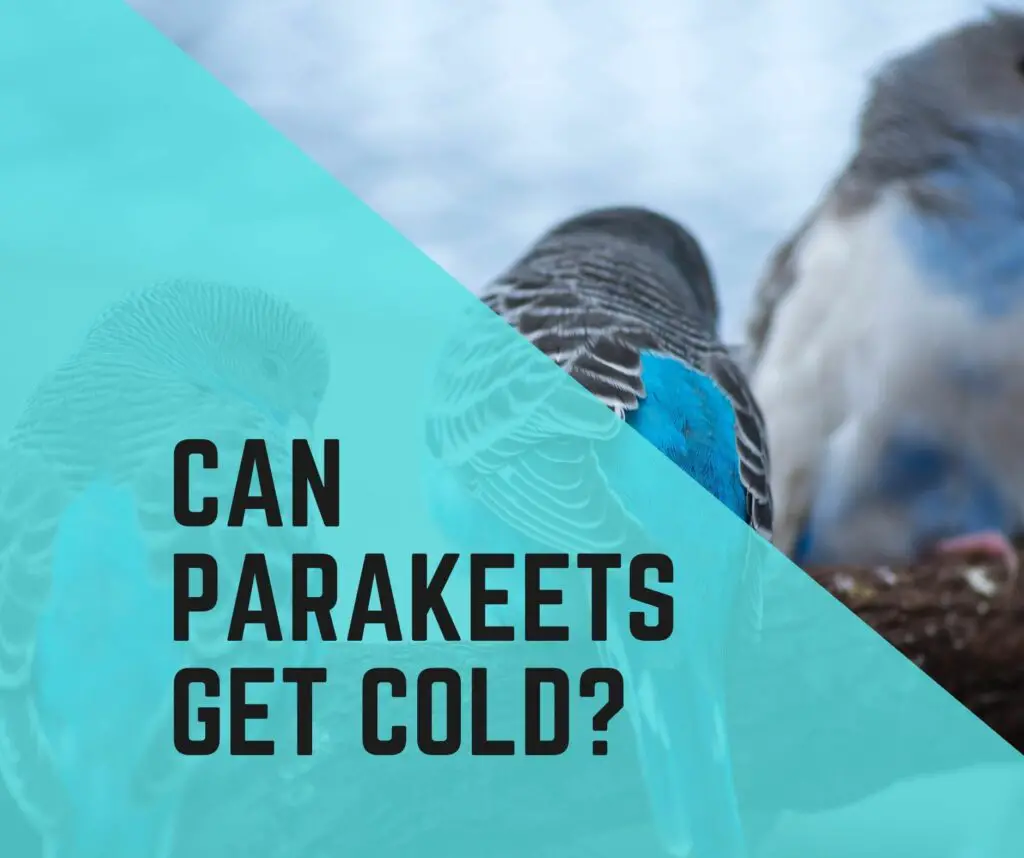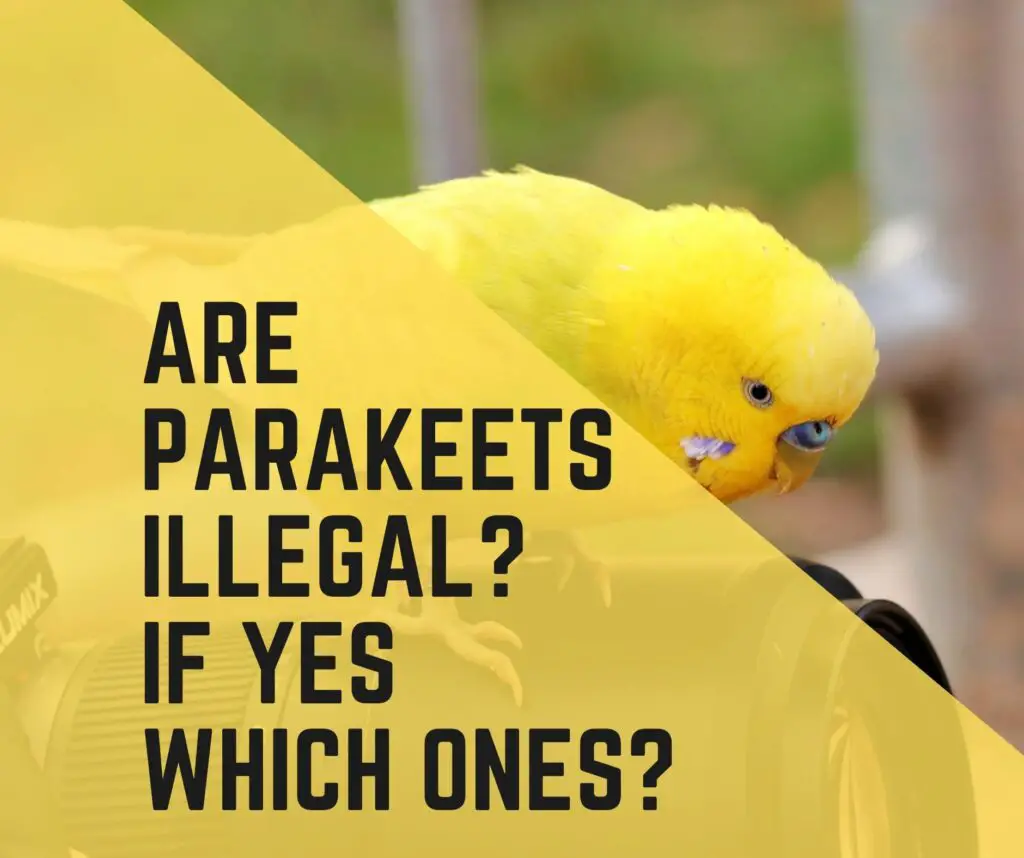Being a responsible pet owner, should you have a pet normal to be concerned regarding their diet. Birds such as parakeets require diverse diets to ensure they get the right nutrition to flourish.
In this article, we’ll discover whether parakeets can take fruits? If so, what kinds of fruit are best for them? We’ll discuss how the fruits fit into your parakeet’s diet. We will look at the best alternatives you can choose for feeding your parakeet.
We’ve provided answers to some of the most frequently asked questions in this article. This article was composed after having spent the time studying.
I want to give you details about the fruit you need to add to your parakeet’s diet. Let’s begin by finding out what parakeets can eat fruits?
Can Parakeets Eat Fruit?
Parakeets can be found enjoying all the time throughout the year, which includes fruits such as apples, grapes, and bananas. Beware of the fact that the seeds of the fruit can be harmful to the digestive system of a parakeet.
Seasonal fruits such as nectarines, apricots, peaches, and strawberries will welcome your pet It is also possible to choose tropical fruits such as papaya, kiwi, and orange, as it offers an excellent variety of food for birds in their diet.
Parakeets also love melons like watermelon and cantaloupe. The berries, like cherries, can serve as food to parakeets since they are harmless.
But it is important to feed fewer fruits to a parakeet in general than vegetables since it’s mostly sugar and water. When we leave out the citrus fruits, like oranges and grapes, that contain Vitamin C, Most contain more sugar.
Parakeets are susceptible to obesity. So sugar and fat must be kept to a minimum at eating. If you do not have any fresh fruit, You can also provide dried fruits such as cranberries, prunes, and raisins to parakeets.
However, ensure that the dried fruits you’re giving are non-sulfured. Let’s discuss which fruits are suitable for parakeets.
What Fruits Are Good For Parakeets?
Parakeets can eat various fruits, including nectarines, grapes, strawberries, Korma apricots, bananas, nectarines, apples, strawberries, and peaches.
They also eat cherries, and the bird also appreciates the fruits that resemble cantaloupe. Together with vegetables, fruits should comprise 5-10% of the total diet, and the rest of the 70% is made up of pellets and seeds.
What Fruits Can Parakeets Eat?
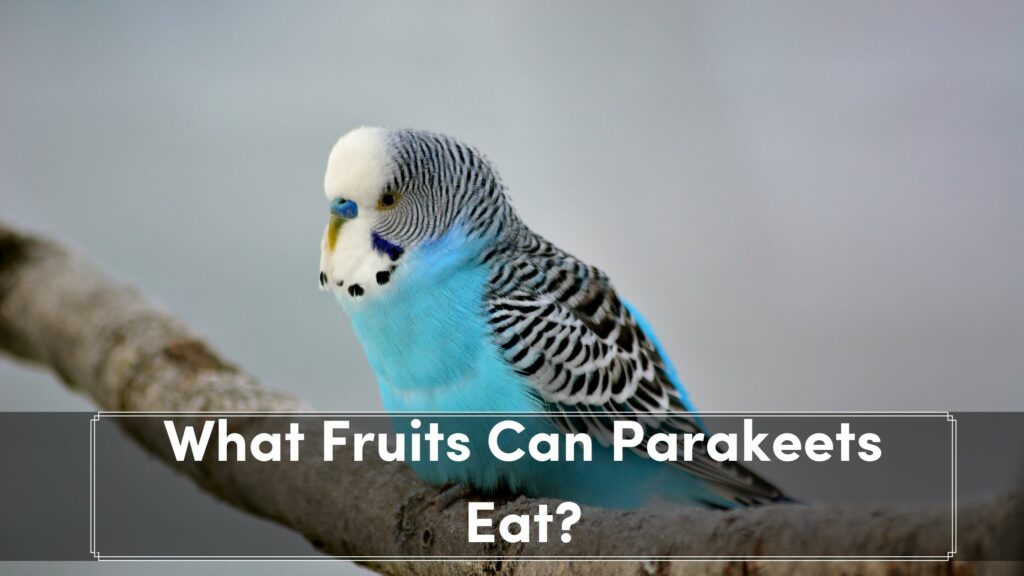
We’ll discuss the various fruits that are beneficial to the health of a parakeet and also the safe amount of fruits
We’ll discuss when you should feed one particular food and the harmful effects of overfeeding specific fruit. Check out this diet chart to find a variety of fruits that are ideal for your feathered friend’s parakeets.
A majority of this fruit is readily available at the local supermarket. Be sure to buy organic fruit because chemicals can harm the parakeets you have.
Can Parakeets Eat Bananas?
Parakeets can consume bananas since it is soft and smooth, making them easy to nip. Bananas are also high in sugar, potassium, and potassium, which makes them a great treat all the time for their diet.
The peel of a banana is not something to worry about because it is completely safe for parakeets to eat. If you are going to offer bananas, ensure it’s completely cleaned and organic.
Can Parakeets Eat Strawberries?
Because most seeds in fruit can be harmful to birds, strawberries can’t be considered dangerous for parakeets. They do contain many seeds; however, they have proven to be a good food source for parakeets during the summer months.
You can give them a real strawberry or cut them into pieces to make easy nibbles. Because the strawberries have a low amount of sugar and calories, the serving size doesn’t impact the overall taste.
Can Parakeets Eat Grapes?
One other citrus fruit which could serve as food for a pet parakeet is grapes. Grapes can be found throughout the year at your local supermarket and have been tasty for the parakeet’s taste.
It doesn’t matter which color they are that you offer your pet as they’re both Red and Green and are good for health. Make sure that there aren’t any seeds in the grapes before feeding them to your pet. It is suggested to crush the grapes, then mix them with seeds to allow them to be eaten by parakeets.
Can Parakeets Eat Apples?
Yes. Apples can be a tasty and nutritious treat for parakeets throughout the year. It is important to remove the seeds from the Apple since it is rich in cyanide, which can be toxic for parakeets.
It is highly recommended to cut the apple into smaller pieces or smaller pieces so that your pet can take an easy bite. Be sure to remove the Apple skin first, as it can make your parakeet have less work to take in.
Can Parakeets Eat Watermelon?
Yes. Watermelon is an excellent source of water for parakeets. In the summer months, you must provide watermelon in the summer when it is hot.
Be sure to thoroughly wash the rind of the watermelon and remove it completely, as it may contain pesticides and parasites that have been proven to be harmful or even kill your parakeet.
Can Parakeets Eat Blueberries?
Blueberries and strawberries are safe for birds to eat. Other fruits, like plums, currants, wild berries, apples, and blackberries, are also available after taking out the pits.
Can Parakeets Eat Blackberries?
Yes. Parakeets can eat blackberries, frequently in an avian’s diet. Blackberries are full of antioxidants and minerals; they can help your pet avoid diseases like cancer, inflammation, and other infections.
Can Parakeets Eat Cucumbers?
Yes. For the right amount of water in summer, you could opt for cucumbers. Because they are soft and crunchy, cucumbers can be a good source of water and nutritious food items for your parakeets, provided you are mindful of moderation. Consuming too much cucumber may cause diarrhea.
Can Parakeets Eat Kiwi?
Yes. Parakeets are always allowed to take kiwi for a snack as it is loaded with many minerals, fiber, and antioxidants. It also contains vitamin C, which is beneficial for indoor-based pets. Birds. You can offer one kiwi each week to your bird or even choose to offer half-size each week.
Can Parakeets Eat Mango?
Mango is the most coveted over all other fruits, safe for birds to consume. Mangoes are usually packed with high-quality nutrients, including Vitamin C, Vitamin A, and sugar.
Mangoes can also add color to your pet’s diet, which they seem to like the most. In addition, additional nutrition, such as vitamin A can aid in Vitamin C aids in maintaining their immune system and prevents dangerous health conditions.
Can Parakeets Eat Pineapple?
The entire pineapple could be fed to a parakeet if the amount is moderate. Parakeets usually prefer eating only the fleshy part of the fruit, but when they decide to eat some of the other parts of the pineapple, there’s no problem. Pineapple leaves, skin, and flesh can be safe for birds to consume.
Can Parakeets Eat Oranges?
With a high content of vitamin C, all the parts of the orange are safe to be provided to your bird pet. Parakeets love not just the color but also the flavor of this fruit, which is tangy. To give texture and tangy taste to your pet’s diet, The answer is citrus.
Can Parakeets Eat Peaches?
Yes, they can take a tiny amount of peaches each time as an occasional treat. It’s fine if cleaned thoroughly. Always purchase organic peaches or canned ones with no added sugar or chemical. Choose organic, fresh peaches as they are the most beneficial.
Can Parakeets Eat Raspberries?
Yes. You can feed your pet raspberries for treats on occasion when moderation is considered. Fresh fruit is a vital ingredient in your pet’s diet, and raspberries are an excellent alternative.
Parakeets require only an amount of raspberries to reap the maximum benefits. In conclusion, you must be cautious about the amount you consume.
Can Parakeets Eat Avocado?
Avocados contain a persin chemical, which isn’t a great tree for companion birds. Persin from avocados is poisonous to many species, including parakeets. Therefore, it is not recommended to serve it to birds.
Can Parakeets Eat Dragon Fruit?
Yes. Parakeets can eat dragon fruit since it offers many health benefits for humans and parakeets. With its beautiful color, delicious taste, and wonderful texture, dragon fruits are and are a delicious treat for your small parakeet companion.
Interesting Further Reading
- Do Lovebirds And Parakeets Get Along? 3 Pros and Cons
- How Big Should A Cage Be For A Parakeet? (2022 Review)
- Found A Parakeet With A Leg Band? 5 Things to Do
How Much Fruit Should I Feed My Cockatiel?
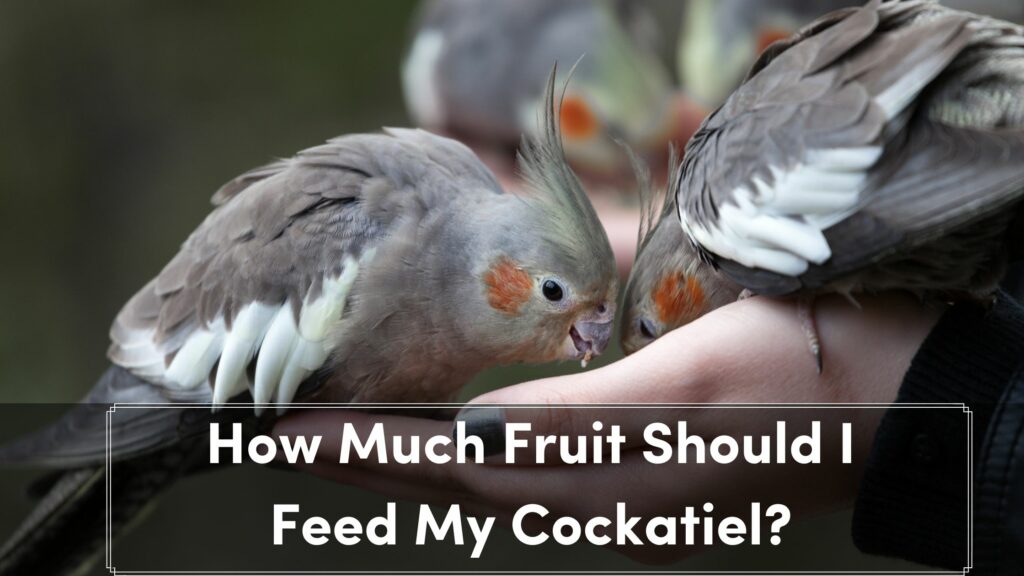
Be aware of the number of fruits and vegetables you feed your pet. I always prefer vegetables over fruits since fruit is rich in sugar and water. The fruits and vegetables you consume should comprise 20 to 25 percent of your bird’s diet.
Pellets, seeds, and nuts are not the only diet for the parakeet. The diet of a parakeet must be balanced. It is important to consider fruits and nuts as treats and not often served with meals or between meals.
The fruit doesn’t need to be the main meal of the bird’s pet. It is also possible to use fruits to reward your pet during training. The taste, texture, and flavor will always attract pets’ attention and help make their bonding stronger with you.
It is possible for a parakeet to grow bored eating the same foods every day. If you see an animal that has stopped eating a diet completely, that’s an alarming sign. This could hurt their well-being.
In addition, the fruits are best balanced with pellets and seeds to limit the amount of fat to a minimum, in moderate amounts. Fat isn’t the most healthy nutrition for your small bird.
How to Feed Fruit To Your Cockatiel?
Like cherries, strawberries, and bananas, a few fruits can be given to your parakeets. The smooth strawberry and bananas are easy for small birds to eat. You can also cut them into smaller bits.
For feeding apples, Peach Apricot, Peach, or any other fruits with pits, you need to take out the seeds first. The pits and seeds of fruit contain cyanide that is deadly to parakeets if consumed in large quantities.
But, you don’t need to be concerned about the strawberry seeds as they are safe in addition to chopping the fruits. The puree is best fed to a baby parakeet if it is required. Be sure to take out the core of any fruit.
Always choose organic fruit and clean them thoroughly. Fruits that are sprayed with pesticides could seriously harm your pet. If you cannot find an organic fruit in the market, you could opt for the tin fruits as it is free of preservatives or sulfur in them.
Finding a Parakeet to taste different kinds of fruit should be an enjoyable experience and should not be considered an obligation. Parakeets are one of those birds that are as close as humans. They’re extremely social birds who enjoy the company of others.
Unsafe Fruits To Parakeet
A wide range of fruits, including avocado, must avoid at any time when preparing a diet for a parakeet. Because avocado is rich in person, it can trigger various health problems for birds.
Avocados can impact your bird’s health severely and can cause issues like respiratory ailments and heart conditions, possibly weakening and death. Avoid avocado-based fruits, even in small quantities.
In addition, the majority of the fruits can feed to a parakeet, provided that it is organic and their pits have been removed. You must stay clear of all costs are mushrooms, cooked beans, onions, chocolate, rhubarb, and caffeine.
Finally
20% of a parakeet’s diet should be made up of seeds and pellets, and the remaining 30% should contain fruits, nuts, and other vegetables. Before making any drastic changes to your pet’s diet, make sure you take fruits in moderation.
It is always good to know which fruits are suitable for your pet’s diet. It is important to wash the fruits thoroughly and get rid of pits or seeds in the event of pits or seeds. Fruits are a great source of nutrition and a snack for parakeets.
When you offer fruits to a pet in its cage, you should consider adding an enclosure skirt to prevent an excessive mess in the cage. Parakeets can be messy eaters, and you may need to clean their cages once they’ve finished eating.
Before bedtime, always think about removing all food items and fruits from their cages. A lack of maintenance could cause your pet to become sick. In addition, it is important to consider cleaning your water dish and food bowl every day.

Hi, There and Welcome to BirdsNews.com, is here to help you learn and care about pet birds. and this blog is a journal of everything I’ve learned.

